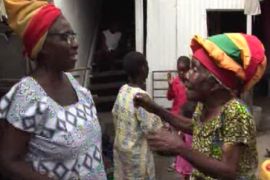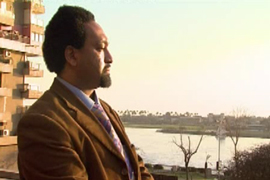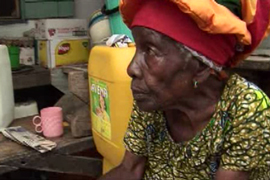Voices from Ghana 50 years on
Al Jazeera talks to Ghanaians as the country celebrates independence.

 |
|
Kwame Nkrumah on March 6, 1957 led Ghana to independence from British colonial rule |
Ghanaians have hoisted their Black Star flag across the nation, celebrating fifty years as the first African country to gain independence.
On March 6, 1957, Ghana became the first state in sub-Saharan Africa to shake off colonial rule and its independence inspired other nations to follow suit.
The relatively stable West African nation lies on the Gulf of Guinea – with Ivory Coast to the west and Togo to the east, and has a population of 22 million.
And while the country has fared better than some of its neighbours over the years, not everyone in Ghana is celebrating.
Al Jazeera spoke to a former president and other Ghanaians about the past 50 years and what the future holds:
Jerry Rawlings, former Ghana president
 |
| Jerry Rawlings |
One person not taking part is the country’s former president Jerry Rawlings.
He held power for over 20 years – making him Ghana‘s longest serving leader.
At this historic point in Ghana‘s history, Al Jazeera’s Andrew Simmons asked Rawlings why he wanted to spoil the party by boycotting celebrations.
He said: “The party has been spoiled by the current government for a long time.
“It’s just that the world, the western media refuses to hear what the opposition and what we’re having to say.
“And I can quite understand, because they want a success story in Africa. They have enough problems in the Middle East, Iraq, Afghanistan etc.
“But the point is that this government has been befouling, desecrating and violating every aspect of the constitution.
“There is something worse than an enemy … and that’s a traitor. When we drove away the white men who was persecuting us and the black man took over, they let us down.”
Gamal Nkrumah, son of Ghana‘s first president
 |
| Gamal Nkrumah |
Kwame Nkrumah led Ghana to independence and went on to become the country’s first president, before he was ousted in 1966.
The son of the country’s founding father talked to Al Jazeera about his hopes and fears – and an assassination attempt on his dad’s life.
Nkrumah said: “One of my earliest recollections were the assassination attempts.
I remember once, when I was about five, there was a, my father used to wear the white … suits, and I remember in one of the assassination attempts which took place in the palace, he walked up the stairs and blood was splattered all over the suit.
“He was wounded, and the shock of the crimson red against the white, never left my memory. I still picture that scene.
“We have a viable, multi-party democracy in Ghana today. But the problem in Africa is that democracy does not feed the people.
“Thousands of young people are trying to flee the desperate economic situation in the country. Many of them lose their lives crossing the Mediterranean, trying to get to European Union countries, in search of better economic opportunities.
“The vast majority of the professionals that were trained during his [Kwame Nkrumah’s] presidency have now gone to seek greener pastures in the United States, Canada and Europe.
“The country has lost them because of political instability in the past and economic malaise in the present.”
Comfort Obeng, three generations living in slums
 |
| Comfort Obeng |
Al Jazeera’s Gabi Menezes talked to the Obeng family in the slum area of Jamestown, which has seen little change over fifty years of independence and remains very poor.
Comfort Obeng was a teenaged housewife under British colonial rule.
She remembers Ghana had a prosperous farming community.
She’s 85 now and is still very nostalgic about her early years. She even looks back fondly on the colonial period.
Obeng said: “When the British were here everything was smoothly running and we enjoyed everything we wanted. The little that you had, even a penny, you could spend it.”
Never the less, Comfort followed Kwame Nkrumah who became Ghana‘s first president and still thinks of him as a hero.
Comfort’s daughter, Monica Bannerman, says independence has brought her children freedom.
Bannerman said: “Especially the schools. Schools have changed. Free education, and the government is also giving the children food. Free food.”
Comfort’s great great grandson, Kingsley Ntiamoah, benefits from free education, but as a fifteen year old in Africa he’s worried about youth unemployment.
Ntiamoah said that if he was in power, he’d make sure people would have jobs after school.
Despite their hardships, all three generations say they’re proud of Ghana and are celebrating the golden jubilee.